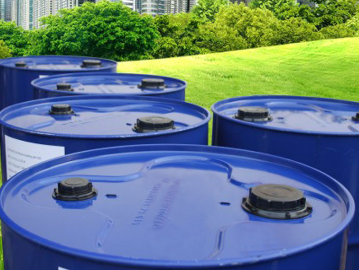
Fuel economy is a crucial factor for vehicle owners looking to save money on fuel costs and reduce their impact on the environment. With the ever-increasing prices of gasoline and the growing concern over global warming, it has become imperative to explore ways to boost fuel economy. One such method is the use of gasoline detergents, which have been proven to enhance the efficiency of combustion engines. In this article, we will delve into the science behind gasoline detergents and how they contribute to improved fuel economy.
Gasoline detergents are a key component of modern fuel formulations. They are designed to clean and maintain the fuel system, including the fuel injectors, intake valves, and combustion chambers. Over time, as the engine operates, deposits of carbon and other impurities can accumulate in these areas, leading to reduced engine performance and fuel efficiency. Gasoline detergents work by breaking down and removing these deposits, allowing the engine to operate at its optimum level.
The primary mechanism by which gasoline detergents work is through chemical reactions. These chemical reactions involve the interaction between the detergent molecules and the carbon deposits. Gasoline detergents contain surfactant molecules, which have two distinct parts: a hydrophilic (water-loving) head and a hydrophobic (water-repellent) tail. When these detergent molecules come into contact with the carbon deposits, the water-loving head attaches itself to the impurities while the water-repellent tail remains in the gasoline.
Once attached to the carbon deposits, the detergent molecules surround and encapsulate them, forming what is known as a micelle. Micelles are tiny structures made up of hundreds of detergent molecules, with the water-loving heads facing outwards and the water-repellent tails forming the core. This arrangement allows the micelle to stay suspended in gasoline while simultaneously trapping the carbon deposits.
The detergent molecules within the micelle then go to work, breaking down the carbon deposits into smaller, more soluble components. This process is known as emulsification. The emulsified carbon deposits can now be easily carried away by the flow of gasoline and flushed out of the engine through the exhaust system. As a result, the fuel system is cleaned, and the engine can operate more efficiently, leading to improved fuel economy.
Besides their cleaning properties, gasoline detergents also offer additional benefits. For instance, they can prevent the formation of new carbon deposits. The detergent molecules form a protective layer on the internal surfaces of the engine, inhibiting the adhesion of carbon and other impurities. This property ensures that the engine remains clean and maintains its efficiency over time.
Furthermore, gasoline detergents can also have a positive impact on engine performance. Reduced carbon deposits result in improved airflow through the intake system, leading to enhanced combustion efficiency. This, in turn, can increase power output, reduce exhaust emissions, and contribute to better overall engine performance.
To ensure the effectiveness of gasoline detergents, it is essential to use high-quality fuel from reputable sources. Fuel standards and regulations vary across countries, but it is generally advisable to choose fuels that meet or exceed minimum quality requirements. Additionally, using detergents in the recommended concentration and frequency is crucial for achieving optimal results.
In conclusion, gasoline detergents play a vital role in boosting fuel economy by cleaning and maintaining the fuel system. Through chemical reactions, they break down carbon deposits and prevent the formation of new ones, leading to improved engine performance and reduced fuel consumption. For vehicle owners looking to maximize their fuel efficiency, using high-quality fuels with effective detergents is a scientifically backed approach to achieve the desired results.